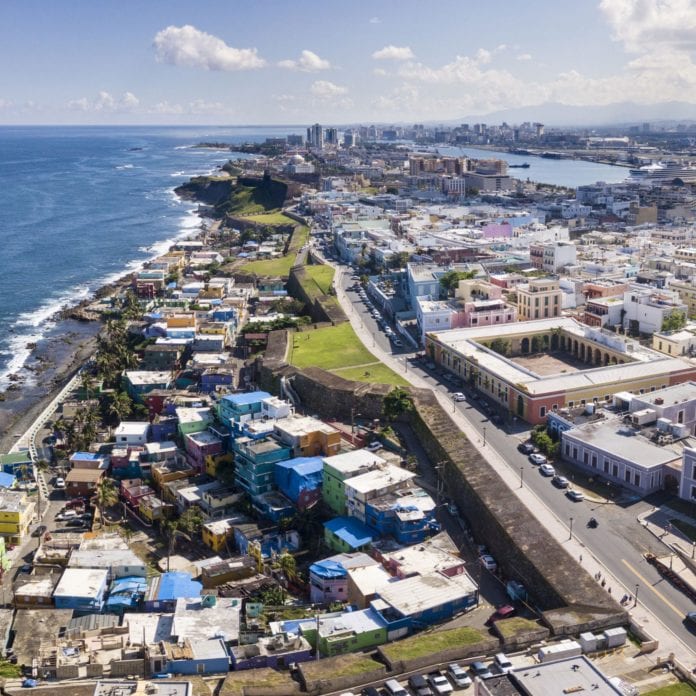Funds are aimed at hardening and improving U.S. territories’ mobile networks
The Federal Communications Commission has authorized $237.9 million in Universal Service Fund dollars to mobile broadband networks in the U.S. Virgin Islands and Puerto Rico. That figure includes the agency’s first USF support for 5G.
AT&T, T-Mobile US and Telecommunications of Puerto Rico (PRTC) will receive funds for both LTE and 5G networks over a three-year period. The FCC had previously allocated $130 million in funding for carriers serving USVI and Puerto Rico.
According to the FCC, the current breakdown of funding in Puerto Rico is:
-AT&T: $73.4 million for LTE or better service and $24.4 million to support 5G service, for a total of about $97.8 million or about $32.6 million per year.
-PRTC will receive $57.4 million to defray the costs of LTE or better service and $19.1 million for 5G service, for a total of about $76.6 million over three years.
-T-Mobile US will receive nearly $44.7 million for LTE or better service and about $14.9 million for 5G service, totaling about nearly $59.6 million over the three-year period.
In addition, AT&T will receive almost $3 million for LTE or better service in the USVI, plus almost $1 million for 5G service in the USVI, or about $4 million during the funding period.
The funding stems from a Stage 2 program for Puerto Rico and the USVI, with the goal to “restore, harden, and expand 4G LTE and 5G technology for voice and broadband service in the aftermath of Hurricane Irma and Hurricane Maria,” which devastated the islands’ infrastructure, including communications networks.
The use of USF monies to support 5G has become of increasing interest to the FCC, which has proposed a 10-year Rural 5G Fund to ensure that rural and remote areas of the United States get similar access to the next-generation cellular services that operators are rolling out in metro areas.
“Over two years ago, communications infrastructure in Puerto Rico and the U.S. Virgin Islands was devastated by Hurricanes Irma and Maria,” said FCC Chairman Ajit Pai in a statement. “The Commission acted quickly to direct Universal Service Fund support to help restore communications networks damaged by the hurricanes. And through today’s action, we are taking a major step toward expanding, improving, and hardening mobile broadband networks on the islands. I’m especially pleased that we are providing the first universal service funding ever specifically targeted for the deployment of 5G networks so that consumers in Puerto Rico and the U.S. Virgin Islands will benefit from the next generation of wireless connectivity.”
The FCC said that six MNOs were interested in the USF funding for PR and the USVI, and four went through the process for certifying that they have existing subscribers in Puerto Rico, with three seeking USF funding for the USVI. AT&T was the only operator that sought funding in both the USVI and Puerto Rico. Each eligible mobile operator which received funding was able to choose to receive 75% of the funds to use toward upgrading and hardening LTE networks and up to 25% for put toward deploying 5G networks. The FCC is still reviewing the other MNOs’ disaster response and preparedness plans, which had to meet specific criteria in order for the carriers to receive the funding.
The FCC required applications to describe in detail how they were going to strengthen infrastructure, ensure “network diversity” for resilience, provide back-up power sources, monitor their networks and prepare for emergencies and natural disasters. The agency also reminded recipients that they have to use the funding “to help restore and improve coverage and service quality to pre-hurricane levels and to help safeguard their equipment against future natural disasters.”

